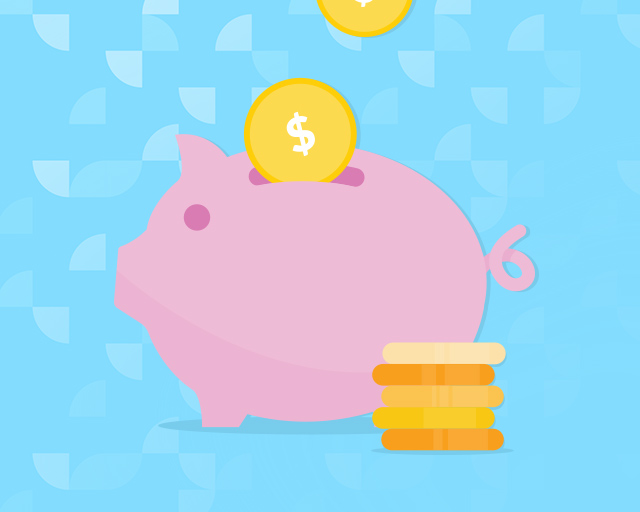

Checking your credit score is quick and easy and you may be able to do it for free. How? Check with your bank, credit union or credit card company. Many will offer free access to your credit score as part of their account benefits.
For example, you get free 24/7 access to your FICO® Score if you have a WebBank/Fingerhut Credit Account.
You can also search for free options online, but don’t get roped into paying for extra services. That means it’s not really free, right?
Can’t get it for free? If you’re paying for it your credit score, we learned from the Consumer Financial Protection Bureau (CFPB) that you aren’t required to purchase credit protection or other services the company offers.1
Checking your credit report can be easier (and cheaper) than checking your credit score. Why? Because Federal law entitles you to one free credit report a year from each of the three credit bureaus: Equifax, Experian and TransUnion. How awesome is that?
Your credit reports show your history of getting loans or other credit and making payments. It also includes personal info (like your name and birthday), credit inquiries and public records.
If you want to learn more about your credit reports, check out our blog article here.
If you’re ready to get your free credit reports, the Federal Trade Commission has all the details here.
Created in 1989 2, the FICO® Score is a three-digit number based on the info in your credit reports and shows how likely you are to repay debt.
Here are the 5 credit-account categories used as part of the calculation and how much each counts toward your score: payment history (35%), amounts owed (30%), length of credit history (15%), new credit (10%) and credit mix (10%).3
Other companies later created their own credit scores. The biggest difference may be the different percentages or formulas to calculate your score, although most will use the same categories. Is one better than another? The short answer is no. CFPB research found that different credit scoring models put consumers in the same credit-quality category 73-80% of the time.4
Your credit score changes because the info used to calculate it (your credit reports) is always changing. Since your credit history can change from month to month, so can your credit score.
That means every payment that’s reported – on time or late – can affect your credit score. So can getting a new credit account or closing one, or when your account balances go up or down.
If positive or negative information drops off your credit reports, that may also affect your credit score. You can see that a lot of factors can cause your score to change, so don’t worry too much about little changes.
Your credit scores are based on the information in your credit report:
- credit accounts
This section shows your open, paid off and closed accounts like credit cards and loans. It will also show how long you’ve had accounts, plus credit limits or original loan amounts. - credit inquiries
This shows who has accessed your report. If you apply for a credit, it’s known as a hard inquiry and can affect your credit score. If you check your own credit or a company prescreens you, it’s a soft inquiry and won’t affect your credit score. - public records
If you’ve ever had a judgment against you, it’ll be here. So will bankruptcies. A Chapter 13 bankruptcy stays on your credit for seven years from the filing date; Chapter 7 stays on for 10 years. Bankruptcies should be automatically deleted from your credit reports after those time periods have passed.
Credit inquiries are when someone looks at your credit report. There are two types:
hard: These show up when you apply for new credit and give the bank, lender or credit company permission to check your credit. If you apply for credit too many times in a short period of time, it can affect your credit rating.
soft: These can be prescreening companies who may want to offer you credit, or your current creditors checking your accounts. If you request your credit reports, that’ll show up too. Don’t worry though, soft inquiries don’t negatively affect your credit. That’s great news because everyone should check their own credit reports at least once a year. Besides, you’re entitled to one free credit report a year from all three credit bureaus. As we mentioned earlier, the Federal Trade Commission has all the details here.
Your credit limits on new accounts are based on a variety of factors including your credit history, credit score, income and credit utilization rate (CUR).
Your credit utilization rate (CUR) is how much you owe, or the total of all your revolving credit accounts, divided by your total credit limits. This shows potential lenders or credit companies if you’re managing credit responsibly and not maxing out your accounts.
The simple answer? Pay down the balances on your revolving credit accounts.
When you pay down your balances, your CUR will also go down and that can have a positive effect on your credit score. On the flip side, if you keep balances high your CUR will also be high, and it may have a negative effect on your score.
1 https://www.consumerfinance.gov/ask-cfpb/where-can-i-get-my-credit-score-en-316/
3 https://www.fico.com/25years/
3 https://www.myfico.com/credit-education/whats-in-your-credit-score
4 https://files.consumerfinance.gov/f/201209_Analysis_Differences_Consumer_Credit.pdf, page 4
FICO® is a registered trademark of Fair Isaac Corporation in the United States and other countries.
Fingerhut Credit Accounts are issued by WebBank, Member FDIC.









